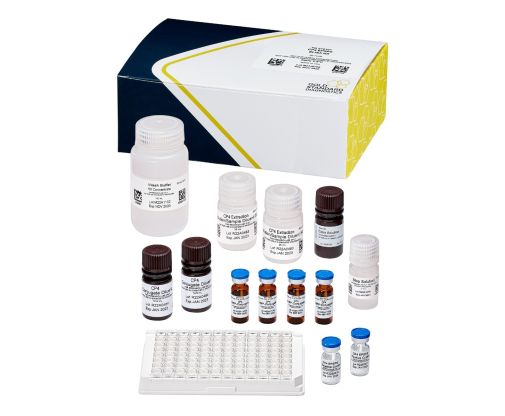Genetically modified seeds that express the CP4 EPSPS protein (or Roundup Ready) can tolerate the herbicide glyphosate used by farmers to kill weeds without damaging the crops that have been genetically modified to be resistant to the herbicide. The CP4 EPSPS ELISA is an immunoassay for the qualitative screening detection of CP4 EPSPS in corn, cotton, and soybean seeds, and leaf, water, and soil samples (please refer to the appropriate sample preparation or extraction). If necessary, positive samples can be confirmed by PCR or other conventional methods.
The test is a “sandwich” ELISA based on the recognition of CP4 EPSPS by specific antibodies. Controls, prepared samples, and extracts are added to microtiter wells coated with anti-CP4 EPSPS polyclonal antibodies. The CP4 EPSPS in the controls and samples or extracts will be bound to the antibody coated wells. After a 30-minute incubation followed by a washing step, the “sandwich” is completed by the addition of an enzyme-labeled anti-CP4 EPSPS monoclonal antibody. The enzyme-labeled conjugated antibody is washed from the wells after a 30-minute incubation. After a final washing step, the substrate solution is added to produce a color signal. The intensity of the blue color is directly proportional to the concentration of the CP4 EPSPS present in the sample. The color reaction is stopped after 20 minutes and the color is evaluated using an ELISA plate reader. The sample is considered positive when the absorbance value is above the absorbance value of the negative control reagent.

